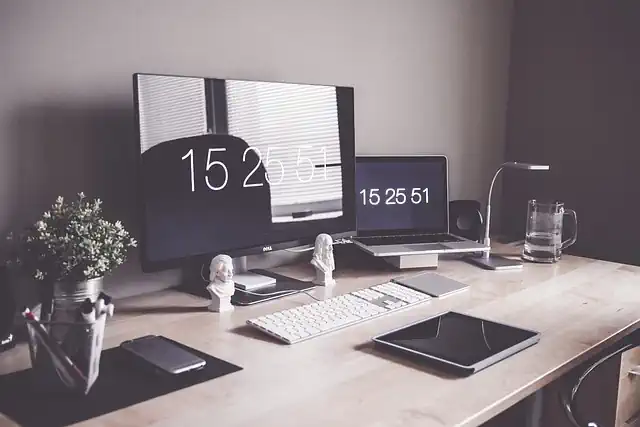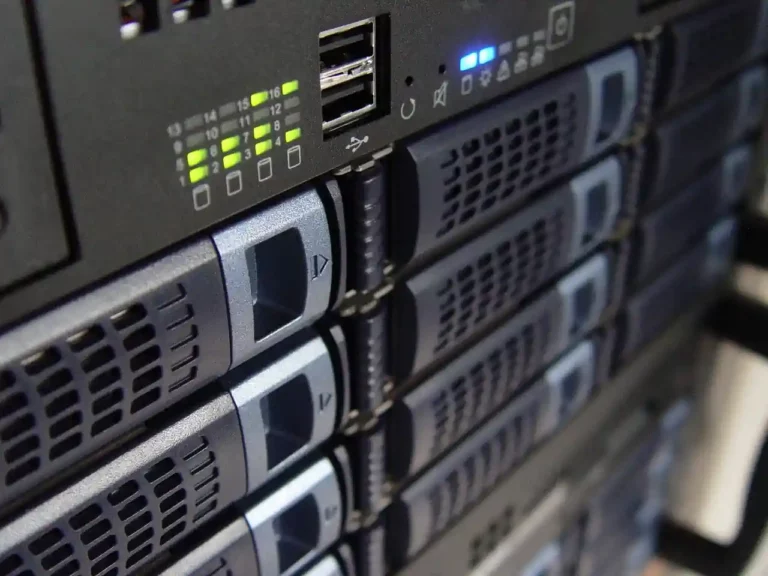How To Make Money As A Musician
Introduction

As a musician, making money can be a challenging task. However, with the right strategies and approach, it is possible to earn a living from your music. In this article, we will explore some tips on how to make money as a musician.
Maximizing Your Merchandise Sales
As a musician, it can be challenging to make a living solely from your music. However, there are several ways to maximize your earnings, and one of the most effective methods is through merchandise sales. Merchandise sales can be a significant source of income for musicians, and it’s essential to know how to make the most of it.
The first step in maximizing your merchandise sales is to create merchandise that your fans will love. Your merchandise should be unique, high-quality, and reflective of your brand. It’s essential to put thought and effort into your merchandise design, as it can make a significant difference in sales. Consider working with a graphic designer to create eye-catching designs that will appeal to your fans.
Once you have your merchandise designed, it’s time to start selling. One of the most effective ways to sell merchandise is at your live shows. Make sure to have a merchandise table set up at every show, and encourage your fans to check it out. You can also offer special deals or discounts for fans who purchase merchandise at your shows.
Another way to sell merchandise is through your website or online store. Make sure to have high-quality photos of your merchandise and detailed descriptions. You can also offer exclusive merchandise that is only available online, which can encourage fans to make a purchase.
Social media can also be a powerful tool for promoting your merchandise. Make sure to post photos and updates about your merchandise regularly, and encourage your fans to share them. You can also offer giveaways or contests to encourage fans to purchase your merchandise.
It’s essential to price your merchandise appropriately. You want to make a profit, but you also don’t want to price your merchandise too high, as it can deter fans from making a purchase. Research the prices of similar merchandise from other musicians and make sure to price your merchandise competitively.
Finally, it’s essential to keep track of your merchandise sales and inventory. Make sure to keep accurate records of how much merchandise you have sold and how much inventory you have left. This will help you make informed decisions about future merchandise orders and ensure that you don’t run out of stock.
In conclusion, maximizing your merchandise sales can be a significant source of income for musicians. It’s essential to create unique and high-quality merchandise, sell it at live shows and online, promote it on social media, price it appropriately, and keep track of your sales and inventory. By following these tips, you can make the most of your merchandise sales and increase your earnings as a musician.
Monetizing Your Music on Streaming Platforms
As a musician, it can be challenging to make a living from your craft. However, with the rise of streaming platforms, there are now more opportunities than ever to monetize your music. In this article, we will explore some of the ways you can make money as a musician on streaming platforms.
Firstly, it is essential to understand how streaming platforms work. Streaming platforms such as Spotify, Apple Music, and Tidal pay artists based on the number of streams their songs receive. The more streams your music gets, the more money you will make. Therefore, it is crucial to focus on increasing your streams to maximize your earnings.
One way to increase your streams is by promoting your music on social media. Social media platforms such as Instagram, Twitter, and Facebook are great tools for promoting your music to a wider audience. You can share links to your music on these platforms and encourage your followers to stream your songs. Additionally, you can collaborate with other musicians and influencers to reach a broader audience.
Another way to increase your streams is by getting your music featured on playlists. Playlists are curated collections of songs that are grouped together based on a particular theme or genre. Getting your music featured on popular playlists can significantly increase your streams and exposure. You can submit your music to playlist curators or use services such as SubmitHub to get your music in front of playlist curators.
It is also essential to optimize your artist profile on streaming platforms. Your artist profile is the first thing people see when they search for your music on streaming platforms. Therefore, it is crucial to make sure your profile is complete and up-to-date. You should include a bio, high-quality photos, and links to your social media accounts. Additionally, you can use tools such as Spotify for Artists to track your streams and gain insights into your audience.
Another way to monetize your music on streaming platforms is by selling merchandise. Merchandise such as t-shirts, hats, and posters can be a great way to generate additional income from your music. You can sell your merchandise on your website or use services such as Bandcamp to sell your merchandise directly to your fans.
Finally, it is essential to remember that streaming platforms are just one part of the music industry. While streaming platforms can be a great way to monetize your music, they should not be your only source of income. You should also focus on other revenue streams such as live performances, merchandise sales, and licensing your music for use in films, TV shows, and commercials.
In conclusion, monetizing your music on streaming platforms can be a great way to make money as a musician. By promoting your music on social media, getting your music featured on playlists, optimizing your artist profile, selling merchandise, and focusing on other revenue streams, you can maximize your earnings and build a sustainable career as a musician. However, it is essential to remember that success in the music industry takes time and hard work. With dedication and persistence, you can achieve your goals and make a living from your passion for music.
Booking and Playing Paid Gigs
As a musician, one of the most important aspects of your career is booking and playing paid gigs. Not only does this provide you with a steady income, but it also allows you to showcase your talent and gain exposure to potential fans and industry professionals. However, getting paid gigs can be a daunting task, especially if you’re just starting out. Here are some tips on how to make money as a musician through booking and playing paid gigs.
Firstly, it’s important to have a professional online presence. This means having a website or social media pages that showcase your music, bio, and contact information. Make sure your website is easy to navigate and visually appealing. You want to make it as easy as possible for potential clients to find you and book you for gigs.
Next, start networking with other musicians and industry professionals. Attend local music events and introduce yourself to other musicians and industry professionals. Join online music communities and forums to connect with other musicians and potential clients. The more people you know in the industry, the more opportunities you’ll have to book paid gigs.
When it comes to booking gigs, be proactive. Don’t wait for gigs to come to you – actively seek them out. Research local venues and events that are looking for musicians and reach out to them. Send them a professional email or message introducing yourself and your music, and ask if they have any upcoming gigs that you could play. Be persistent but polite – it may take several attempts before you get a response.
When negotiating payment for gigs, be realistic but don’t undervalue yourself. Consider the amount of time and effort you’ll be putting into the gig, as well as any expenses such as travel or equipment rental. Don’t be afraid to negotiate – but also be willing to compromise. Remember that building relationships with venues and event organizers is important for future gigs, so it’s important to maintain a positive and professional attitude.
Once you’ve booked a gig, make sure you’re prepared. Practice your setlist and make sure you have all the necessary equipment. Arrive early to set up and soundcheck, and be professional and courteous to the venue staff and event organizers. Remember that you’re representing yourself as well as the venue or event, so it’s important to make a good impression.
After the gig, follow up with the venue or event organizer. Thank them for the opportunity and ask for feedback on your performance. This not only shows that you’re professional and courteous, but it also gives you valuable feedback that you can use to improve your future gigs.
In conclusion, booking and playing paid gigs is an essential part of making money as a musician. By having a professional online presence, networking with other musicians and industry professionals, being proactive in seeking out gigs, negotiating payment, being prepared for gigs, and following up after gigs, you can increase your chances of booking paid gigs and building a successful career as a musician. Remember to stay positive, persistent, and professional – and most importantly, have fun!
Teaching Music Lessons or Workshops
As a musician, there are several ways to make money, and one of the most popular is teaching music lessons or workshops. Not only is it a great way to earn some extra income, but it also allows you to share your passion for music with others and help them develop their skills.
Teaching music lessons can be done in a variety of settings, including private lessons in your home or studio, group lessons at a music school or community center, or even online through video conferencing platforms. The first step in getting started is to determine what type of lessons you want to offer and who your target audience is.
If you’re just starting out, it’s a good idea to focus on one or two instruments or areas of expertise. This will allow you to build a reputation and establish yourself as an expert in your field. You can then expand your offerings as you gain more experience and build a larger client base.
When it comes to pricing your lessons, there are several factors to consider. These include your level of experience, the length and frequency of the lessons, and the location and type of lesson. Private lessons typically cost more than group lessons, and in-person lessons may be more expensive than online lessons due to travel and overhead costs.
One way to attract new students is to offer a free trial lesson or workshop. This allows potential students to get a feel for your teaching style and see if they’re a good fit for your program. You can also offer discounts for referrals or package deals for multiple lessons.
In addition to teaching music lessons, you can also offer workshops or masterclasses on specific topics or techniques. This can be a great way to reach a larger audience and share your knowledge with other musicians. You can advertise your workshops through social media, local music stores, or online music communities.
Another option is to partner with local schools or community centers to offer after-school programs or summer camps. This can be a great way to reach a younger audience and introduce them to the world of music. You can also offer scholarships or financial assistance to students who may not be able to afford private lessons.
When it comes to teaching music, it’s important to remember that it’s not just about the money. Teaching can be a rewarding experience that allows you to share your passion for music with others and help them achieve their goals. It’s important to be patient, flexible, and adaptable to the needs of your students.
In conclusion, teaching music lessons or workshops can be a great way to make money as a musician. Whether you’re just starting out or have years of experience, there are plenty of opportunities to share your knowledge and skills with others. By focusing on your strengths, pricing your lessons appropriately, and marketing your services effectively, you can build a successful teaching business that allows you to do what you love while earning a living.
Creating and Selling Digital Products, such as Sample Packs or Presets
As a musician, creating and selling digital products can be a lucrative way to make money. Sample packs and presets are two popular options that can be sold online to other musicians and producers. Here are some tips on how to create and sell these digital products successfully.
Firstly, it’s important to have a clear idea of what you want to create. Sample packs can include drum loops, instrument samples, and sound effects, while presets are settings for virtual instruments and effects plugins. Think about what you’re good at and what you enjoy creating, and focus on that. It’s also important to consider your target audience and what they might be looking for.
Once you have a clear idea of what you want to create, it’s time to start recording and editing. Make sure you have high-quality equipment and software to ensure that your samples and presets sound professional. Take your time to create a variety of sounds and settings, and make sure they are organized and labeled clearly.
When it comes to selling your digital products, there are a few different options. You can sell them on your own website or through a platform like Gumroad or Sellfy. These platforms allow you to set your own prices and take a percentage of each sale. You can also sell your products on marketplaces like Splice or Loopmasters, which have a larger audience but take a larger percentage of each sale.
To promote your digital products, it’s important to have a strong online presence. This includes having a website or social media accounts where you can showcase your work and interact with potential customers. You can also offer free samples or presets to entice people to buy your full product.
Another way to promote your digital products is to collaborate with other musicians and producers. This can help you reach a wider audience and gain credibility in the industry. You can also offer exclusive discounts or bundles for those who purchase multiple products from you.
It’s important to keep in mind that creating and selling digital products is not a get-rich-quick scheme. It takes time and effort to create high-quality samples and presets, and building a customer base takes time as well. However, with dedication and hard work, it can be a sustainable way to make money as a musician.
In conclusion, creating and selling digital products like sample packs and presets can be a great way to make money as a musician. It’s important to have a clear idea of what you want to create, use high-quality equipment and software, and promote your products through a strong online presence and collaborations with others in the industry. With patience and persistence, you can turn your passion for music into a profitable business.
Conclusion
Conclusion: Making money as a musician requires a combination of talent, hard work, and business savvy. Musicians can earn money through various avenues such as live performances, merchandise sales, streaming royalties, and licensing deals. It is important for musicians to develop a strong brand, network with industry professionals, and continuously promote their music to increase their earning potential. With dedication and persistence, it is possible for musicians to make a living doing what they love.







